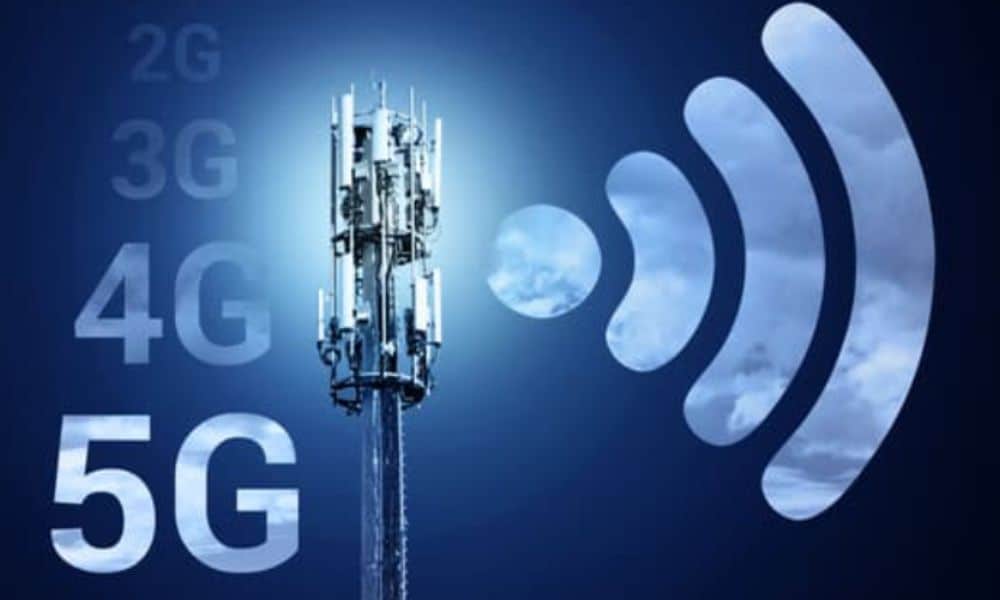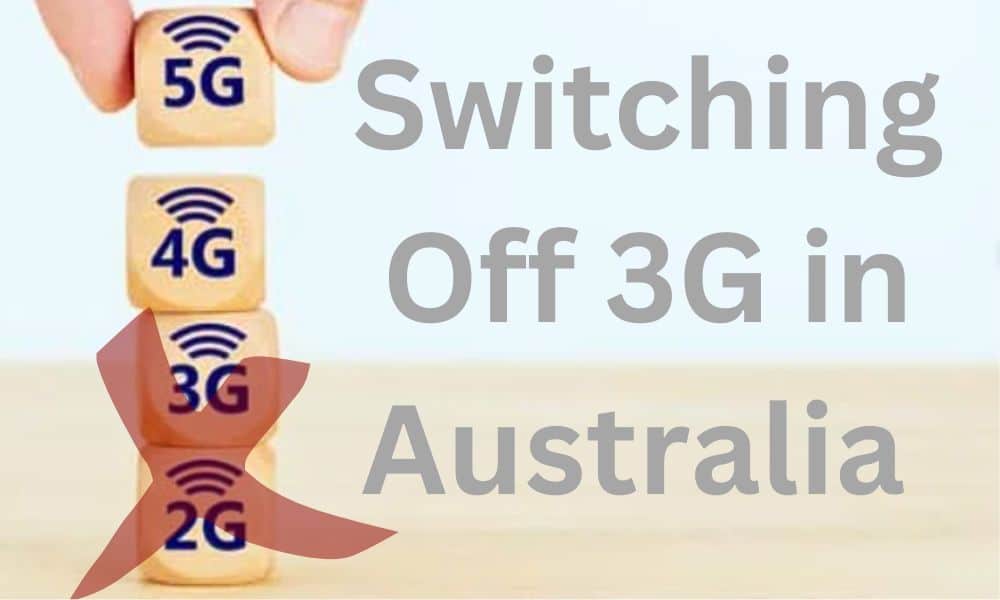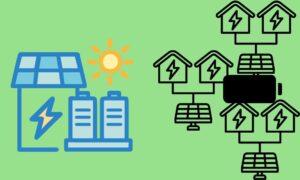As technology advances astonishingly, telecommunication networks are undergoing significant transformations to keep up with the demands of a digitally driven society. One such transformation is the imminent shutdown of the 3G in Australia, which marks a crucial step towards embracing faster and more efficient connectivity. Telstra, Optus, and Vodafone, the nation’s major telecom providers, are all set to bid adieu to 3G services, reshaping the telecommunications landscape and opening doors for advanced technologies like 5G. This article delves into the significance of the switch off 3G in Australia and its implications for the Australian telecommunications industry and consumers.
Attention, savvy consumers! Are you tired of overpaying for your internet services? Are you searching for the perfect internet plan that fits your needs without breaking the bank?
Look no further because Energy Matters have the solution for you: Compare and Save Internet Plans – absolutely FREE! No obligation to sign up and it’s 100% free to use! Our user-friendly tool empowers you to compare a wide range of options, unlock incredible savings and transform your internet experience. Visit our website now and take the first step towards a brighter, more affordable online journey!
The 3G network and its evolution
The third generation (3G) of mobile telecommunications technology was introduced in the early 2000s, offering higher data speeds and improved call quality compared to its predecessor, 2G. With the introduction of 3G, users could access basic internet services, send multimedia messages, and experience more reliable connections. However, as technology continued to evolve, the limitations of 3G became apparent, especially in an era dominated by data-hungry applications and devices.

The rise of 4G and beyond
The launch of the fourth generation (4G) technology in the late 2000s marked a significant leap forward, delivering even faster data speeds and enhanced performance. 4G networks enabled seamless video streaming, online gaming, and other data-intensive activities. This technological advancement laid the groundwork for the Internet of Things (IoT) and the proliferation of smart devices, contributing to a more connected world.
With the establishment of 4G networks, telecom providers worldwide began to consider the eventual shutdown of their 3G infrastructure to free up valuable radio frequencies for more advanced technologies. Australia is joining this global trend, with its major telecom players taking decisive steps towards discontinuing 3G services.
Australia's telecom providers: Telstra, Optus, and Vodafone
Telstra
Australia’s largest telecommunications provider, Telstra, announced its plans to switch off the 3G network on June 30, 2024. This move aims to reallocate resources to bolster their 4G and 5G networks, providing customers with faster and more reliable connections.
Optus
Another major player, Optus, is also on track to shut down its 3G network in September 2024. The company has invested heavily in expanding its 4G and 5G coverage to ensure a smooth transition for its customer base.
Vodafone
Vodafone, now part of TPG Telecom Limited, is set to bid farewell to its 3G network on 15 December 2023. The company’s focus on 4G and 5G technologies aligns with industry trends and the growing demand for higher-speed data services.
Experience a new level of energy savings with Energy Matters Marketplace – your one-stop shop for renewable energy products and more whether you’re looking for solar panels, battery storage or outdoor or indoor products.
3G in Australia: Impact on rural communities and older devices
The switch off of 3G networks is a concern for some rural areas, which may not have adequate 4G or 5G coverage. A study by the Better Internet for Rural, Regional and Remote Australia (BIRRR) found that over 200,000 premises in regional and remote Australia rely solely on 3G for mobile coverage.
The BIRRR calls on the telcos to delay the switch-off of 3G networks in rural areas until there is adequate 4G or 5G coverage. The group also calls on the federal government to provide financial assistance to rural communities to upgrade their mobile infrastructure.
The telcos have said that they are working to improve 4G and 5G coverage in rural areas, but it is unclear when this will be completed. In the meantime, some rural residents may need to find alternative ways to access mobile data, such as using Wi-Fi or satellite internet.
Older devices to become obsolete with 3G switched off in Australia
In addition to the concerns about rural coverage, there are also concerns about the impact of the 3G network switch off on older devices. Many older smartphones and tablets only support 3G, so they can no longer connect to the internet after the switch-off. This could leave some people needing access to essential services, such as banking and healthcare.
The telcos have said they will offer trade-in programs for older devices, but how many people can afford to upgrade their devices is unclear. The government could also provide financial assistance to help people upgrade their devices.
Source: ABC News
I've got a 3G phone, what should I do?
You can still use it for basic tasks in the 3G phone, such as making calls, sending text messages, and browsing the internet. However, you cannot use it for more data-intensive activities like streaming videos or downloading apps.
You must find a Wi-Fi hotspot if you need to do anything more data-intensive. Wi-Fi is available in many public places, such as cafes, restaurants, and hotels. You can also purchase a mobile hotspot device that will allow you to connect to the internet from anywhere.
It is important to note that the 3G network in Australia is being phased out. This means that your 3G phone may eventually stop working altogether.
How to stay connected
- Check your phone to see if it is 4G or 5G compatible. You can do this by looking at the phone’s specifications or contacting your phone’s manufacturer.
- You must buy a new one if your phone is not 4G or 5G compatible.
- Once you have a new phone, make sure to activate it on a 4G or 5G plan.
Here are a few other options:
- Upgrade your phone to a 4G or 5G phone. This is the most straightforward option, and it will ensure that you have a working phone.
- Rent a 4G or 5G phone. There are a number of companies that rent mobile phones, and this can be a good option if you only need a phone for a short period of time.
- Use a Wi-Fi hotspot. Wi-Fi hotspots are available in many public places, such as airports, cafes, and hotels. This is a good option if you only need to use the internet for basic tasks like checking email or browsing the web.
Implications for consumers
The discontinuation of the 3G network in Australia will have several implications for consumers:
Need to upgrade devices: As 3G services are phased out, consumers still reliant on 3G-compatible devices will need to upgrade to 4G or 5G to continue enjoying mobile services.
Enhanced connectivity: The shift away from 3G will enhance network performance, allowing users to experience faster data speeds, lower latency, and improved overall connectivity.
Support for advanced applications: 4G and 5G networks provide the foundation for innovative technologies like augmented reality (AR), virtual reality (VR), and IoT applications, which will become more accessible to the general public.
Expanded network coverage: Telecom providers will likely channel resources into expanding 4G and 5G coverage, potentially reaching remote and underserved areas with high-speed connectivity.

Transitions away from 3G
The impending shutdown of the 3G network in Australia represents a significant step towards a more technologically advanced and connected future. Telstra, Optus, and Vodafone’s strategic decisions to discontinue 3G services highlight their commitment to delivering improved network performance and catering to the evolving needs of consumers. As the nation transitions from 3G, users can look forward to faster speeds, lower latency, and a host of new opportunities that 4G and 5G technologies bring.
Switching to a better energy plan?
You may already have an energy plan but want more power or to shop for a better deal.
Energy Matters‘ Free Energy Bill Comparator” is a cutting-edge energy bill tool that compares your area’s most competitive retail offers. We collect the data from our wide range of trusted retailers, allowing you to decide on the switching plan and find the best deal for your needs.
If your goal is to get more electricity and minimise the cost of your gas and electricity bills, switch to a better plan now!














































